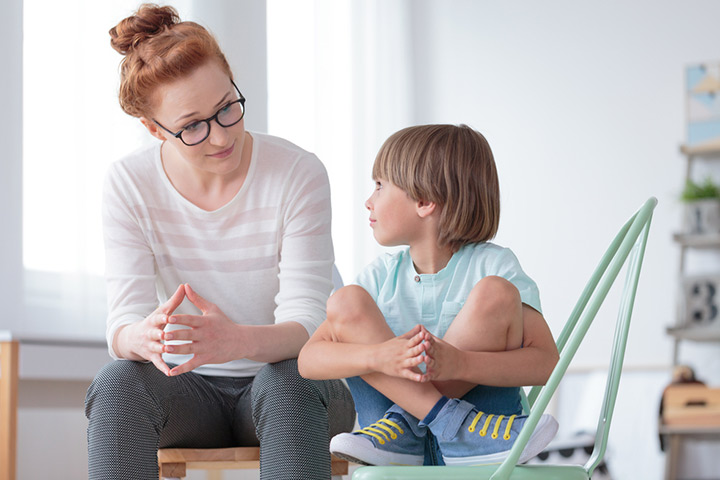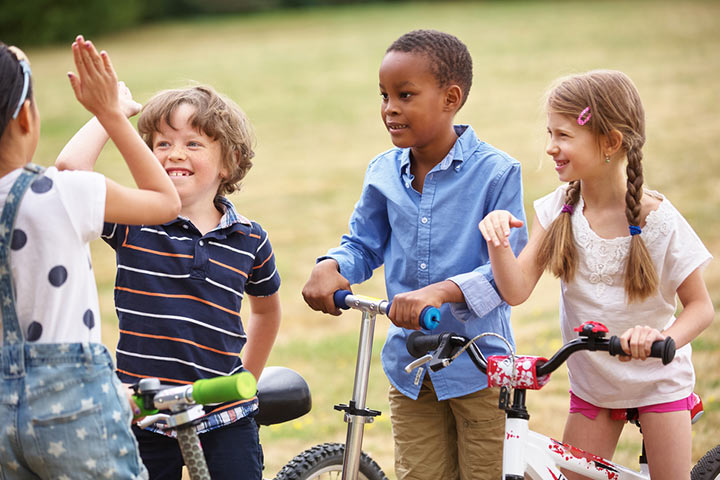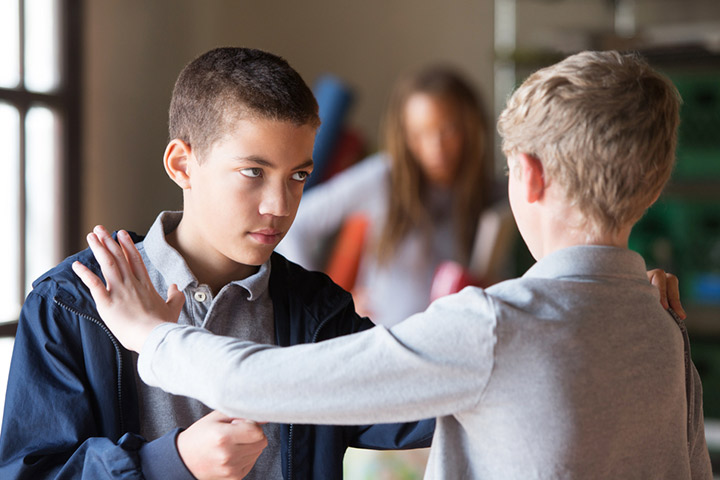
Image: Shutterstock
Parenthood can get complicated at times. As your child grows, their social circles expand. But with new friends comes the challenge of dealing with tricky situations and unpleasant scenarios that you have to teach them to navigate. The older your little one grows, the more peer pressure they are exposed to. Children of all age groups face social pressure at one point or another. Most adolescents go through this as their need for external validation and acceptance peaks during this period. Dealing with feelings of neglect or rejection can be particularly hard for your young one.
Here are a couple of tips that help parents guide their socially pressured kids cope in healthy ways:
1. Good Communication Goes A Long Way
Image: Shutterstock
The best way to help your child is to facilitate open conversation between the two of you. Maintaining a strong bond and good communication will ensure that your child feels comfortable around you. See if they are willing to open up about struggles they may be facing in their social group. Let them know that you are available if they need someone to talk to.
Create a safe and non-judgmental space for your kids. This will help them trust you with details about their life. Avoid being aggressive or harsh when they disclose information to you. Hold off to share your concerns at the end and tell them what you would have done differently to introduce them to a new perspective. This technique will work far better than arguing and criticizing them for the choices they make.
2. Meet Their Friends
Image: Shutterstock
If your child has been exhibiting unpleasant behaviors late and cuts you off to spend time with their friends, a great way to deal with this is to invite them home and meet who they hang out with. This will give you a good idea of the kind of company your child keeps and what you are dealing with. Inviting the kids over and making them comfortable will help them feel at ease around you. This will enable you to establish rules of conduct at home and will give you a deeper understanding of how their group dynamics work. It will also help you understand what interests they have. Another way to be kept in the loop is to befriend their parents and bond over shared family values and parenting styles. This will also make it harder for the kids to get away with mischief.
3. Encourage Them To Interact With New People
Image: Shutterstock
Let’s say you’ve met the friends and they don’t seem very suitable for your child, well they could always make new ones. Keep in mind that it is good for your child to interact with many kinds of people in order to get a more realistic purview of the world. Sometimes, this unfortunately means making the acquaintance of kids you aren’t very nice. But learning to take yourself out of undesirable social situations and making friends with people who treat you with respect and kindness is an important life skill your child should learn. You can help them do this by encouraging them to pursue extra curricular activities that they have an interest in. Kids with the same interest often become fast friends as they share common interests. Allow them to cultivate friendships in different environments as this will help them detach themselves from unpleasant ones.
4. Teach Them How To Say No
Image: Shutterstock
We’ve all had moments when we find it hard to stick up for ourselves and say no. But this is one skill everyone needs to practice. This is why it is important for parents to set limits and stick to them. It helps children understand boundaries. Modeling by example is the best way to teach your kids how to behave and sometimes that entails refusing to do certain things. This way, your child will also realize that they can decline to do things that make them feel uncomfortable or don’t align with their values. Saying no when you are alone in front of a group can be daunting and scary. Having friends who share the same ideas and values as your kid will help them break off from the others instead of facing ridicule and judgment.
Knowing what to say and do to uplift your child instead of making them feel worse about themselves is a hard job. Sometimes you may have said the wrong thing without even meaning to. Children are sensitive and their world only gets more complicated as they grow up. We hope that these tips help you guide them to deal with social pressure in healthy ways. Is there something you would like to add to the list? Let us know in the comments section!
















